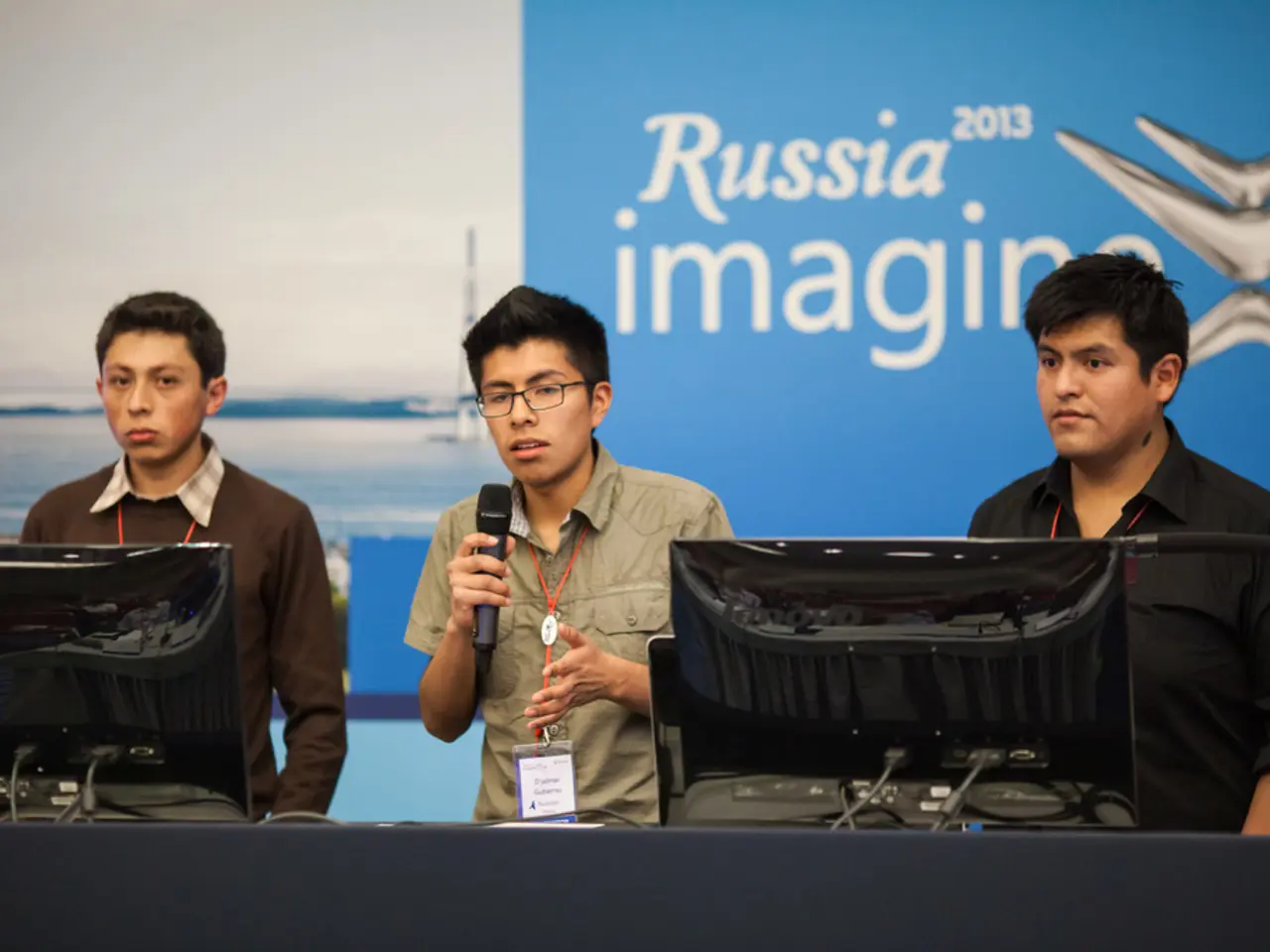Diplomatic parity with Putin is unwarranted. - "The assertion that Putin lacks the standing to be considered an equal counterpart should be upheld."
In the world of diplomacy, finding common ground and achieving progress can be a complex and delicate dance. This week, several key events and issues are shaping the global landscape.
Kaja Kallas, the newly appointed EU foreign minister, is eager to represent the European Union in the region, but her effectiveness is limited without a unified position among member states. The EU's foreign policy, a topic of discussion for many, including Wolfgang Ischinger, is under scrutiny as the world watches the ongoing issues in Gaza unfold.
Meanwhile, the upcoming meeting between US President Donald Trump and Russian President Vladimir Putin is the first between the two leaders in over four years. There are concerns that Putin could manipulate the bilateral process, dragging it out and positioning himself as an equal negotiating partner. This comes amidst Trump's public verbal sparring matches and controversial statements, which do little to instill confidence, especially in Germany, where the fear of a nuclear war lingers.
The world's perception of Europe's credibility has taken a hit due to its handling of the Gaza issue, and finding a common European position on Israel remains a challenge. Germany, in particular, faces internal struggles, as a common European position would likely conflict with its specific Israel policy.
On a brighter note, the European economy is clear about the direction it wants to take in transatlantic trade, and the risk of a full-blown trade war with the US has been averted. However, the EU continues to face criticism in areas such as trade policy, AI, and military capability, leaving it appearing weak in comparison to other global powers.
As the anticipated meeting between Trump and Putin approaches, hopes are high that it will bring substantial and sustainable progress in ending the ongoing Ukraine war. Yet, preparations for this meeting seem to be exhausted, raising doubts about its potential impact. The planned meeting between the leaders on Ukraine is expected to take place, but Putin has already withdrawn the prospect of a trilateral summit.
The EU is also grappling with internal discord on the issue of Gaza, with experts emphasising the need for prolonged, detailed discussions to build trust and establish a common position, as was the case during the negotiation of nuclear arms control between the US and the Soviet Union in the 1980s.
In conclusion, the current state of international relations is characterised by a mix of challenges and opportunities. As leaders navigate these complex issues, the importance of trust, preparation, and unity cannot be overstated.
Wolfgang Ischinger, a former Ambassador of the Federal Republic of Germany to the USA and the UK, and currently the president of the foundation council of the Munich Security Conference, continues to be a voice of reason in these turbulent times. Despite the complexities, it is clear that the world is watching closely, waiting for signs of progress and unity.
The European Union, with its commitment to a comprehensive and comprehensive policy on the environment, is attempting to navigate complex geopolitics, including war-and-conflicts, while facing questions about its policy-and-legislation and unity in politics, as depicted in the ongoing issues in Gaza and the upcoming meeting between US President Donald Trump and Russian President Vladimir Putin. Amidst these challenges, the world as a whole is closely monitoring general news related to these events, with Wolfgang Ischinger serving as a voice of reason in these turbulent times, emphasizing the need for prolonged, detailed discussions to establish a common position, as was the case during the negotiation of nuclear arms control between the US and the Soviet Union in the 1980s.






